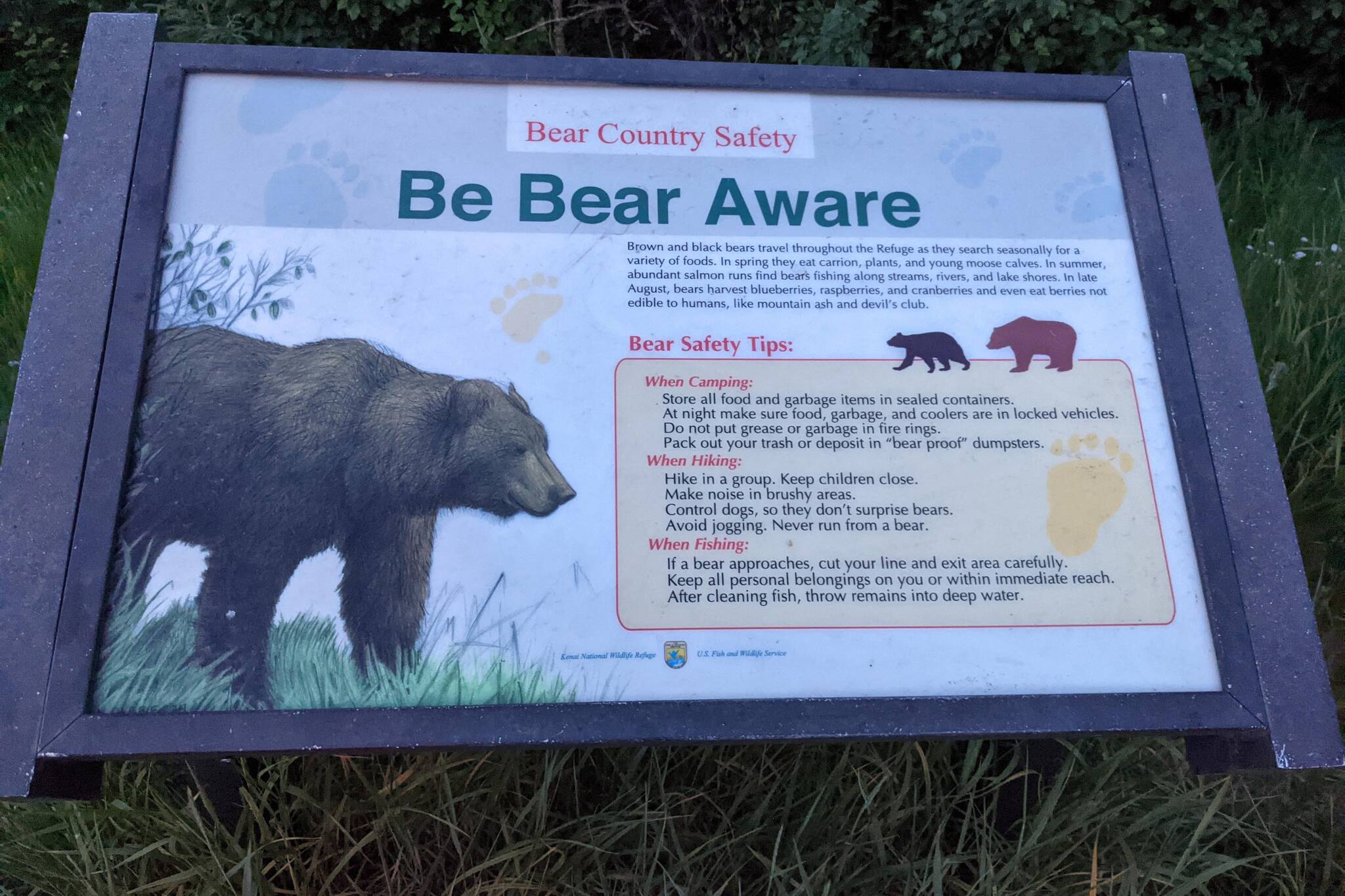Got bears? Got bears where they don’t belong?
Kenai Peninsula residents and landowners are eligible for up to $500 to protect your property and reduce conflicts with bears. Nonprofit Defenders of Wildlife will help you obtain and install an electrified fence to keep bears out of things they shouldn’t get into. Defenders will also reimburse you for 50% of your cost up to $500.
Electric fences are an effective and relatively inexpensive way to keep bears out of gardens, beehives, chicken coops, garbage, and other attractants. Now in its fourth year of operation on the Kenai, the Electric Fence Incentive Program has provided funding to people throughout the Kenai and is ready to help you.
Alaska bears are not currently listed as threatened or endangered, but they are still susceptible to climate change, habitat loss, food scarcity and conflict with humans. Kenai Peninsula brown bears are particularly vulnerable as they are a small, geographically isolated population.
Conflict with bears poses a significant risk to human health and safety, property, and livelihoods. Bears are often killed due to conflict with people. These deaths exacerbate the downward pressure of other threats on the Kenai bear population. Fostering coexistence between humans and bears is a critical component of bear conservation efforts.
Hunters are significantly affected by conflict-related bear mortality. On the Kenai Peninsula, only 50-60 bear deaths due to human causes per year are allowed. This includes deaths from both hunting and human-bear conflict. In 2022, there were 52 reported bear deaths, resulting in an emergency closure of the hunting season by Alaska Department of Fish and Game.
Bears are a vital part of Kenai ecosystems, enriching our forests and preserving our streams. During salmon season, bears drag their catch through the forest, where the salmon carcasses enrich the soil and promote increased forest growth. Bear scat also fertilizes and distributes plants. Bears pass seeds from the fruit they eat as they move through different parts of the ecosystem, spreading plants to new locations and increasing biodiversity. Bears also keep prey populations in check, preventing plant life from being over-grazed and riverbanks from eroding.
Bears bring significant economic value to Alaska. Every year, millions of dollars in revenue enter the state from bear viewing opportunities, with many jobs and livelihoods tied to the presence of bears on the landscape.
Other Defender of Wildlife projects include partnering with Resurrection Bay Conservation Alliance in 2021 and 2022 to supply the Seward community with bear-resistant trash containers. Defenders has also worked with the Department of Natural Resources to install bear-proof food storage lockers and interpretive signs in high human and bear-use areas in Resurrection Bay.
You can learn more about living safely with bears on the Kenai Peninsula later this month at workshops hosted by Alaska Department of Fish and Game and Defenders of Wildlife:
April 24 in Kenai at the Cook Inlet Aquaculture Association from 6-8 p.m.
April 25 in Soldotna at the Soldotna Public Library from 6-8 p.m.
April 26 in Seward at the Seward Community Library and Museum from 6-8 p.m.
April 27 in Homer at the Pratt Museum from 6-8 p.m.
One virtual session will also be made available. For more information about the Electric Fence Incentive Program or to apply for funds to install an electric fence, go to www.defenders.org/got-bears.
Isabel Grant works with Defenders of Wildlife, an organization dedicated to the protection of all native animals and plants in their natural communities.

